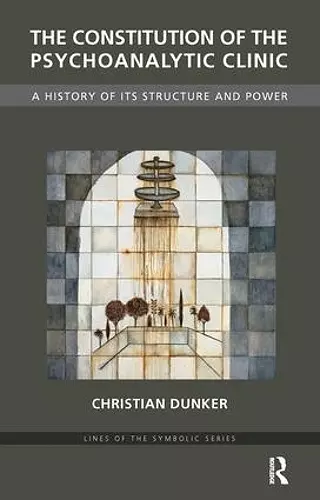The Constitution of the Psychoanalytic Clinic
A History of its Structure and Power
Christian Dunker author Terence Hill translator
Format:Paperback
Publisher:Taylor & Francis Ltd
Published:31st Dec '11
Should be back in stock very soon
This paperback is available in another edition too:
- Hardback£135.00(9780367106225)

This book provides a detailed examination of the historical roots of psychoanalysis from ancient Greece to the late nineteenth century, focusing on social practices that were related to the founders of psychoanalytic theory and maintained within contemporary treatment. Alongside the reconstruction of an evolutionary accumulation of healing practices, the book includes linked discussions of current issues pertaining to psychoanalytic treatment and its working structure as elaborated by Freud and Lacan.There are vital political consequences for psychoanalytic practice - here articulated with an acknowledgement of these practical derivations of early pre-psychoanalytic treatments of the soul. The book demonstrates that these are neither mere techniques nor concepts of the world and the human subject, but they concern the way the problem of power is articulated.The historical establishment of psychoanalytical practice becomes legible through analysis of the traces of the elements of a political ontology, an account of the roots of those traces and the elaboration of the conceptual structure of psychoanalysis as theory and treatment, a praxis which maintains its own distinctive identity.
'Never before has the history of the psychoanalytic clinic been covered so comprehensively and with so much critical insight. In this landmark volume, Christian Ingo Lenz Dunker demonstrates how the emergence and development of psychoanalysis as a clinical practice cannot be understood without taking account of the detailed and extensive philosophical debates on subjectivity and mental healing that preceded it. The Constitution of the Psychoanalytic Clinic does for the principles of psychoanalytic treatment what Henri Ellenberger did for dynamic psychiatry in The Discovery of the Unconscious: encyclopaedic yet critical, the author offers the defining historical account of a clinical discipline, which is sufficiently polemical so as to be not definitive and, thus, give psychoanalysts, sociologists, and cultural historians a new object of study for generations to come.'- Professor Dany Nobus, Brunel University 'If we are interested at all in what constitutes the proper study of the historical evolution of the practices that characterize psychoanalysis, then we take a couple of things seriously: Freud's remark that we should study the history of civilization, mythology, the psychology of religion, literary history, and literary criticism, and Lacan's idea that we add rhetoric, dialectics, grammar, and poetics to that list. With this giant of a book, Chris Dunker ticks all those boxes in this beautifully sketched archaeology of the types of knowledge that make possible the emergence of psychoanalysis on the one hand and genealogy of its practise on the other.'- Carol Owens, Psychoanalyst, Dublin'Why has psychoanalysis been exempt, until now, from any sustained archaeological and genealogical enquiry? What are the fissures, "the zones of instability", in the discourse of psychoanalysis? Are ethics and power always constitutively separated? What power and influence do psychoanalysts have over their analysands? What of psychoanalysis' "counter-power"? And what of the possibility of freeing ourselves from ourselves? Dunker's scholarly analysis of the structure and constitution of the clinic is a welcome contribution to the discourse of psychoanalysis. It is a work of considerable depth, and essential reading for anyone who has any engagement with psychoanalysis and is concerned with the consequences and possibilities of its power.' - Simona Revelli, Psychoanalyst, London
ISBN: 9781855756465
Dimensions: unknown
Weight: unknown
436 pages